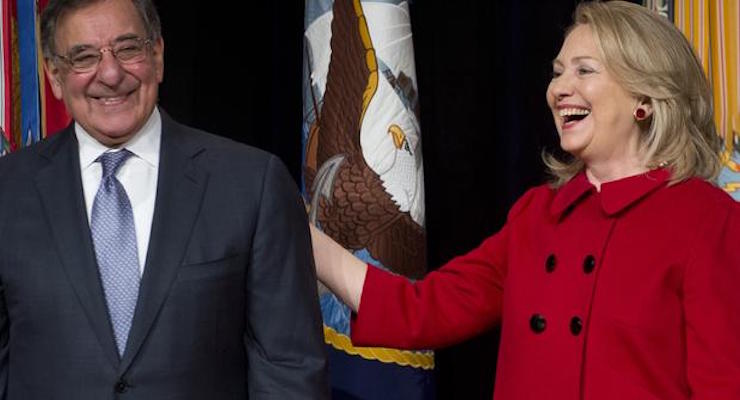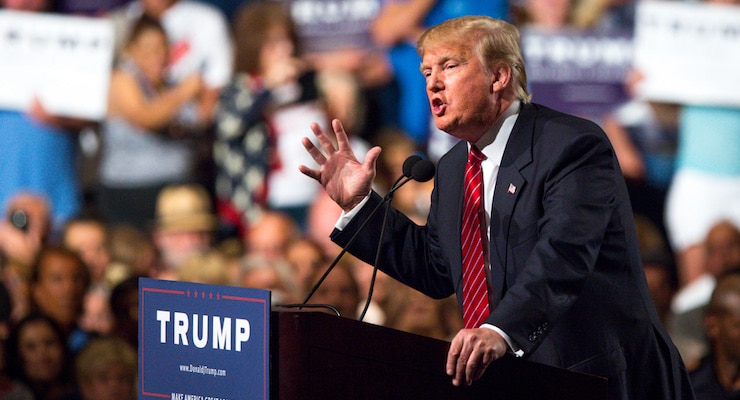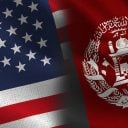

PHOENIX, AZ – JULY 11: Republican Presidential candidate Donald Trump addresses supporters during a political rally at the Phoenix Convention Center on July 11, 2015 in Phoenix, Arizona. (Photo: Charlie Leight/Getty Images)
It seems strange that so few of my fellow TV binge-watchers have submitted to the fascinating Norwegian political thriller, “Occupied.” Friends, this is eight hours of your life you won’t mind not getting back.
In the story, an idealistic Norwegian prime minister stops his country’s huge oil production in the name of confronting climate change. To get the oil flowing again, the European Union asks Russia to invade and reopen the taps. Russia complies and proceeds to occupy Norway in a humiliating velvet-glove manner.
The United States plays a central role by virtue of its absence. In this near-future tale, America has become energy-independent and left NATO. Once expected to dive headlong into any crisis, especially where the Russians are involved, the U.S. has decided to watch from the sidelines.
Such scenarios are sounding less fantastical as populist American candidates question the long-held assumption that the U.S. military must maintain order everywhere. They’re addressing the growing distress at seeing rich allies warmly applaud or critique our performance while happily not paying.
That the bombastic Donald Trump is condemning this setup does not strip the complaint of all merit. But it does give “responsible” opinion the luxury of bashing Trump’s remark that “NATO is obsolete” without much elaboration.
These days, our allies — spooked by Russia’s annexation of Crimea and its advances in eastern Ukraine — are proclaiming the Atlantic alliance anything but obsolete. Norway, a preacher of peace, has rekindled its love for NATO as the Russian military swarms over the Arctic Circle (in real life, not on TV).
Russian warplanes are flying down the Norwegian coast with in-your-face impunity. And Norway, which had been cutting its defense budget, is finally raising it.
Which brings us to one of Trump’s points about NATO — a point all but glossed over by those incensed by the word “obsolete.”
Americans are paying for 75 percent of NATO’s military spending. And only six of the 28 NATO members have met U.S. demands that they devote at least 2 percent of their gross domestic product to defense. We spend 3.6 percent. For the record, the combined GDP of our NATO allies is about equal to ours.
Trump’s suggestion that the U.S. stop buying Saudi oil if that country’s government doesn’t start contributing ground troops to the fight against ISIS was also greeted with derision. “Without us,” Trump said with a trademark threat, “Saudi Arabia wouldn’t exist for very long.”
What he didn’t say was that the Saudis have also refused to take in Syrian refugees. Nor did he note that they are funding the jihadis threatening the West.
And what about the West? Some of our rich European allies have become so passive and so lazy they’ve barely bothered monitoring known terrorists living off their social benefits. (Belgium, by the way, spends 0.9 percent of its GDP on defense.)
On the left, Bernie Sanders treads some of this territory, rightly questioning America’s seeming addiction to military intervention. He does go off course in arguing that we should spend less on the military so we can spend more on social priorities.
The No. 1 job of the federal government is national defense. We spend whatever we have to. We don’t say: “Oh, there’s a budget surplus this year. Let’s have a war.”
But both Trump and Sanders are solid in asking what all this defense spending is doing for us. Are we Americans obliged to both police the globe and pay for the service? We pick up the bills that other prosperous countries are perfectly content to leave on the table. Let’s ask ourselves why.






